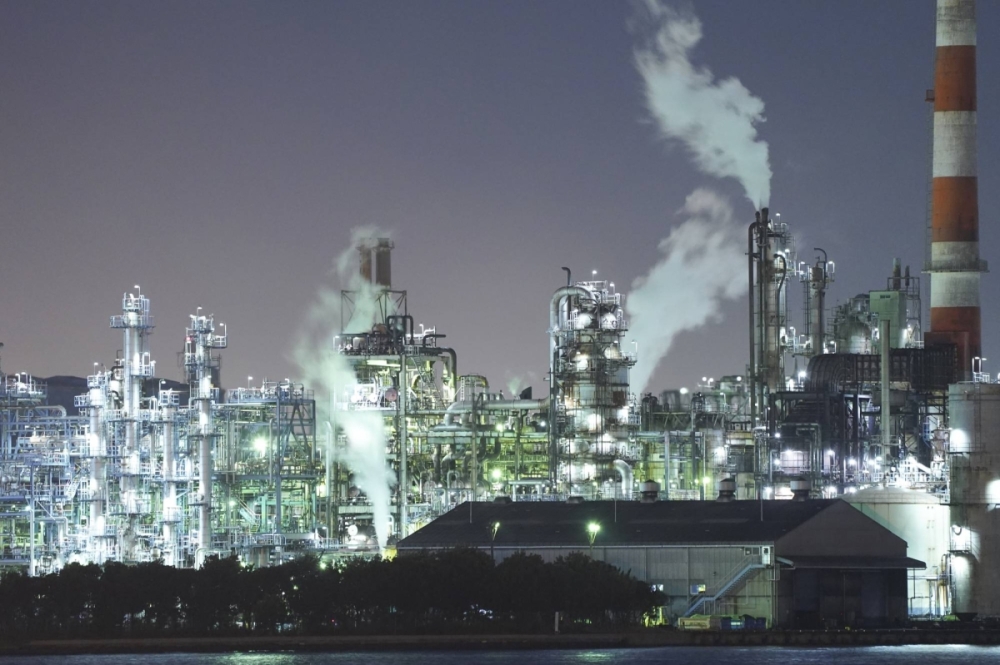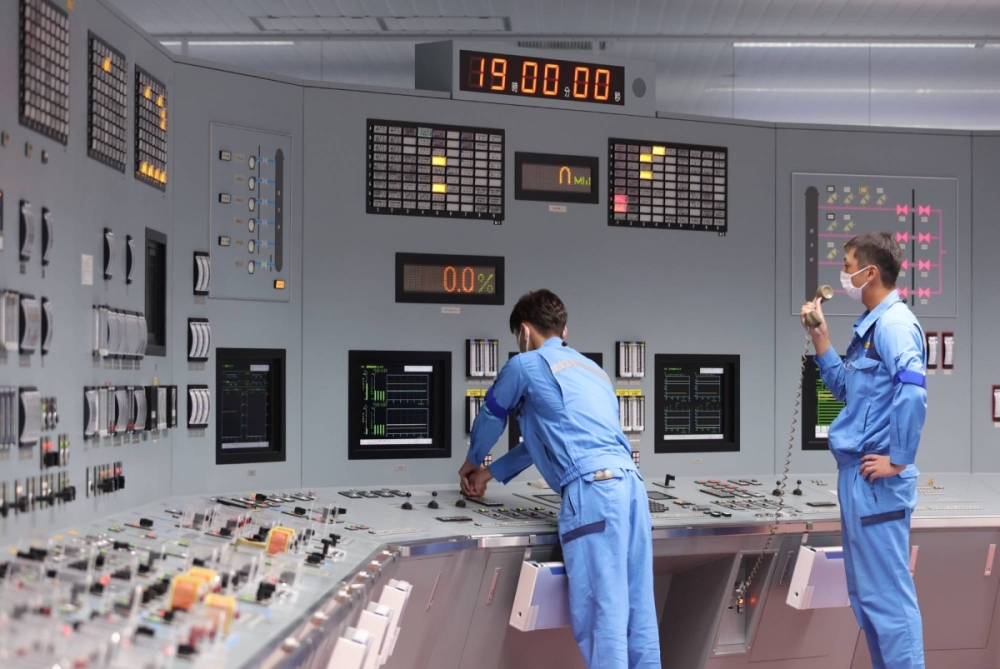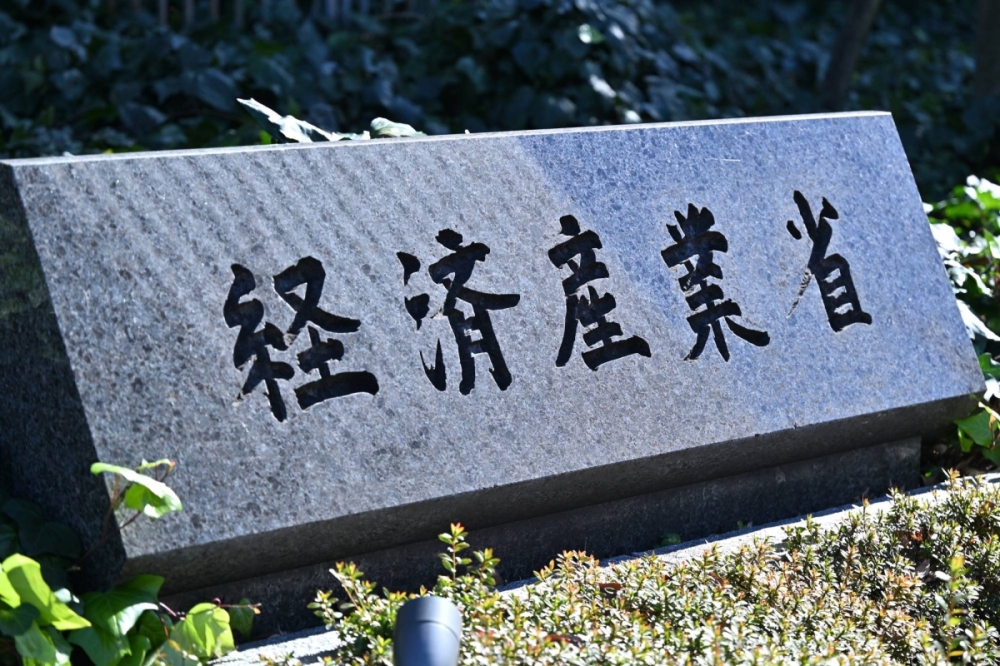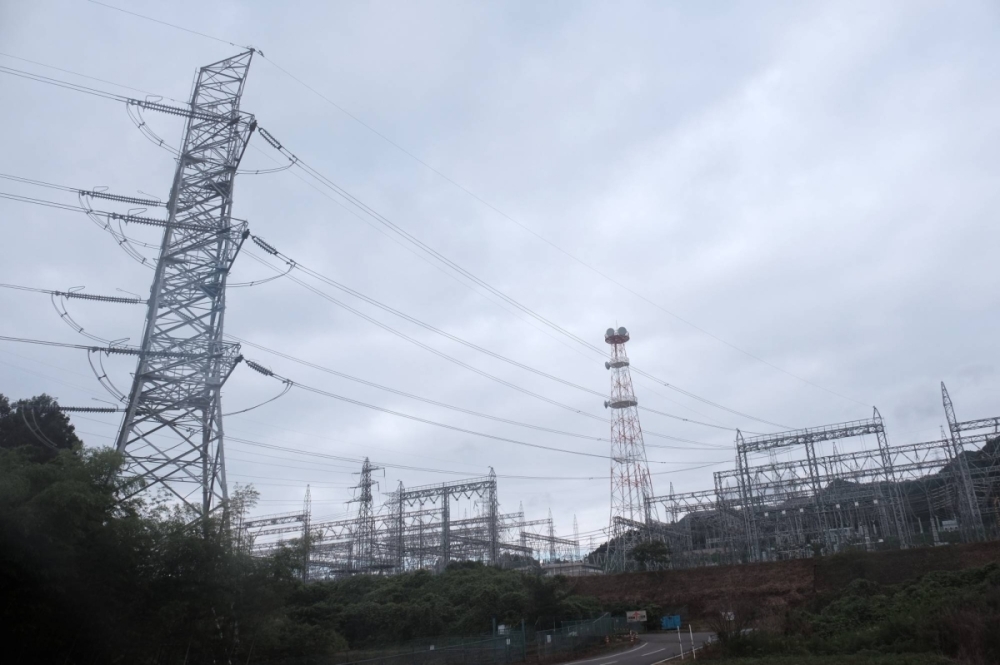“As Japan nears new climate goal, criticism of policy process ramps up”, Japan Times
BY TOMOKO OTAKE AND CHRIS RUSSELL, TOKYO, Dec 10, 2024
The debate over the government’s recent draft proposal to reduce the country’s greenhouse gas emissions by 60% by 2035 has spilled over into scrutiny over the decision-making process itself, with businesses, think tanks and civil society groups criticizing not only the proposed target but also the way in which the policy-setting panels are composed and run.

The government is preparing to set the target as Japan’s new Nationally Determined Contribution (NDC), an emissions reduction commitment made by members of the United Nations climate framework’s Paris Agreement. Japan currently has a goal to cut emissions by 46% in 2030 from 2013 levels and is targeting carbon neutrality by 2050.
These targets are arrived at via a web of committees, subcommittees and working groups spanning the Environment Ministry, the Ministry of Economy, Trade and Industry (METI), and the METI-affiliated Agency for Natural Resources and Energy.
Critics charge that the process is essentially a rubber-stamping of a plan already decided upon by bureaucrats, and that the membership of at least some of the committees is biased toward those who support the status quo of an energy mix based on fossil fuels and nuclear energy. Such concerns were heightened when it emerged on Nov. 25 that a committee member had previously been blocked from presenting an opinion urging a far more ambitious emissions reduction target.
“I think that incident really opened people’s minds that this process is not really the process to discuss, (but a) process just to approve it,” said Kimiko Hirata, executive director of Climate Integrate, a think tank that earlier this year conducted an analysis of Japan’s energy policymaking process. “It’s just a formalistic process, so that’s the problem.”
A question of balance
The groundwork for the NDC has been laid by a joint Environment Ministry-METI committee based on the Environment Ministry’s Plan for Global Warming Countermeasures and the Strategic Energy Plan formulated by METI. That energy plan is being compiled by the Strategic Policy Committee based on the work of numerous panels and groups, and has widespread implications not just for emissions reductions but also household utility bills, government spending and business competitiveness.
Based on government guidelines, such panels should be fair and balanced in terms of experience and opinion, aim to have women make up at least 30% of the panel members, in principle avoid the appointment of the elderly and strictly limit the involvement of former government officials, among other considerations.

Tohoku Electric Power Co. workers restart the No. 2 reactor of the Onagawa Nuclear Power Plant in Onagawa, Miyagi Prefecture, on Oct. 29. Critics say the membership of at least some climate policymaking committees is biased toward those who support the status quo of an energy mix based on fossil fuels and nuclear energy. | BLOOMBERG
The main Environment Ministry-METI committee is seen as relatively balanced, yet Climate Integrate’s analysis published in April found that panels involved in formulating the Strategic Energy Plan skew male and elderly — at least 75% of the Strategic Policy Committee is 60 or older — and that the membership of several committees is dominated by those supporting fossil fuels and nuclear power, with people with vested interests more likely to be involved in less senior panels.
“Most of the members are for nuclear and they are not really supportive of renewable energy, so the opinions we hear the most, quite often, are to endorse more gas … or nuclear promotion,” Hirata said of the METI committees.
The issue has begun to draw attention from parts of the business community.
“In a way, this means that CO2 (carbon dioxide) emitters are making decarbonization policies,” Yusuke Matsuo, program director of the Japan Climate Leaders Partnership, a group of 252 businesses including Apple, Takashimaya, Takeda Pharmaceutical and Sekisui House, told reporters Dec. 3.
“If I were an oil company representative called to a government panel, I would keep my company’s interests in mind. That would be my obligation, and I would be sued for a conflict of interest if I didn’t. So this is not about pointing a finger at members; it’s an issue of the (policymaking) mechanism.”
Matsuo said energy policies should also reflect views from more diverse stakeholders, including young people, as well as farmers and fishers, who are being severely impacted by climate change.
Masahiko Hikida, an official at the energy strategy office of the Agency for Natural Resources and Energy, which coordinates the Strategic Policy Committee, rebutted accusations that the makeup of the committee is unbalanced.

The economy ministry maintains that the composition of a committee held jointly with the Environment Ministry is “well balanced.” | JIJI
Hikida said METI’s stance hasn’t changed since May, when then-minister Ken Saito responded to a question in parliament from Tomo Iwabuchi of the Japanese Communist Party, who called on the ministry to involve a wider range of members of society, such as younger people, renewable energy providers and climate disaster victims, in the panel.
“The Strategic Policy Committee includes as members academic experts and specialists necessary to conduct the discussions, from such fields as energy conservation, renewable energy and nuclear energy, and also from areas of the Japanese economy, energy-intensive industries, consumers, large and small companies, and finance (businesses),” Saito told a committee on economy, trade and industry in the Upper House.
“The committee composition is well balanced,” he added.
Regarding criticism that the committee doesn’t reflect the voices of young people, who will spend more of their lives in the world shaped by today’s climate policy, Hikida countered that the panel hosted representatives of youth groups — the Japan Youth Council, Climate Youth Japan and the Japan-America Student Conference — in September in order to listen to their views on energy and climate policy.
The framing of discussions at the Strategic Policy Committee has also come in for criticism, with Renewables Energy Institute Executive Director Teruyuki Ohno pushing back against METI’s contention at a meeting on May 15 that Japan is “on track” with its emissions reductions, in contrast to the European Union.
That determination is based on a trend starting in the fiscal year from April 2013, when Japan’s emissions were unusually high after nuclear power plants were shut down in the wake of the Fukushima meltdown, and moreover gross emissions are used for the figure for that year, unlike the net emissions shown for subsequent years. Using the same 1990 starting point as for European countries reveals a much slower rate of reductions, Ohno wrote in July.
Diverse opinions
Concerns over climate policymaking were crystalized on Nov. 25, when Shota Ikeda, president of the renewable energy provider Hachidori Solar and a member of the Environment Ministry-METI panel, told a meeting that he was prevented from calling for more ambitious emissions cuts of 75% by 2035 during a meeting the previous month.
Due to scheduling conflicts, Ikeda had tried to have his opinion read out on his behalf, but he was asked to “withhold” expressing the viewpoint by an Environment Ministry official, he said.
“As I was invited to join the NDC discussion this year, I was told that the government wants to discuss policies and measures with experts to achieve carbon neutrality in Japan by 2050,” he told the meeting. “I was asked to contribute frank opinions to create a meaningful forum, so I decided to participate, intending to give it my all.
“In reality, it was not a ‘place for discussion,’ but only a three-minute presentation of public comments. Can we find the right direction by proceeding this way? … It looks as if we’re just adding convenient comments to an existing scenario.”

Japan’s Strategic Energy Plan has widespread implications not just for emissions reductions but also household utility bills, government spending and business competitiveness. | BLOOMBERG
Asked about the exchange at a news conference on Nov. 29, Environment Minister Keiichiro Asao denied the ministry tried to block Ikeda’s comment.
“I checked with officials and confirmed that the intention was to ‘postpone’ the expression of his comment because it wasn’t in line with the agenda of the previous meeting,” he said. “We would like to proceed by listening to diverse opinions thoroughly while keeping time limitations in mind.”
In terms of time limitations, Hirata pointed out that Nov. 25 was the first time the government had presented the new 2035 target, and that the proposal will likely be presented in a matter of weeks.
“There’s no time for us to think or to discuss,” Hirata said.
Matsuo of the Japan Climate Leaders Partnership also said the speed of government discussions on the 2035 target picked up “at an unprecedented pace” in early November.
While recognizing there isn’t much scope for significantly changing the NDC target or energy policy at this stage, Hirata nonetheless encourages the government to widen discussions beyond the existing committee structure, bringing in other groups as well as individuals such as members of parliament.
“I think it’s not too late for Japan to take stock and take some time to present something more openly and then have a broader discussion beyond the current committee,” Hirata said.